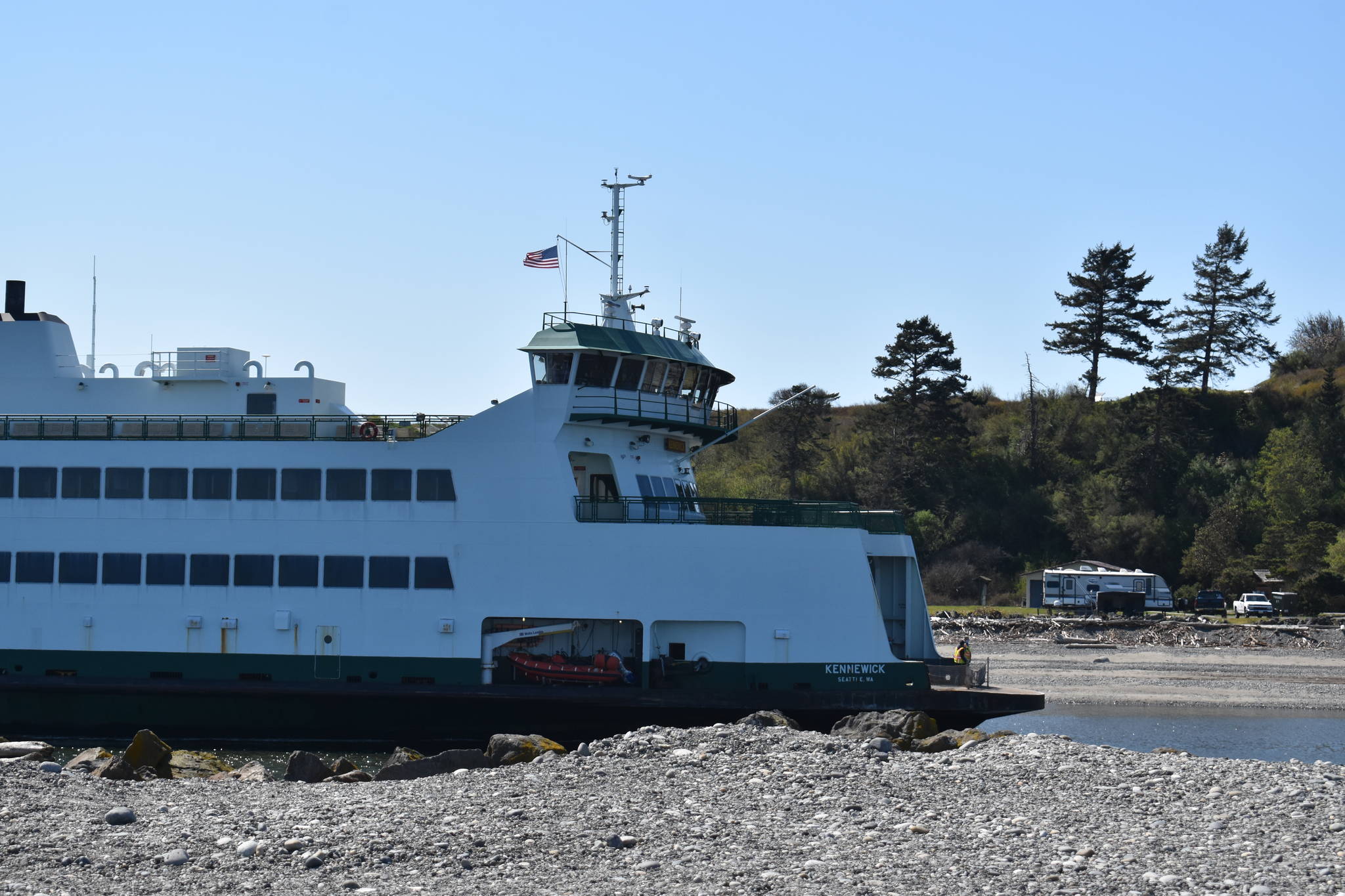Another delay in two-boat service means Coupeville ferry riders will need to squeeze onto one boat until at least June 27.
Washington State Ferries spokesperson Ian Sterling said the delay was the result of an engine fire aboard one of the ferry system’s largest boats and previously reported staffing shortages.
Reservations for the second boat on the Coupeville-Port Townsend route were canceled. Passengers should check their itineraries to see if their trips were affected.
Two-boat service was supposed to start May 9. Staffing issues had already delayed it until early June, and now it has been pushed back a second time.
One of the engines on the ferry Wenatchee caught fire during sea trials on April 22, after the vessel had two engines rebuilt. Washington State Ferries said the vessel would be out for months. No crew were injured, and there were no passengers on board.
The National Transportation Safety Board, the U.S. Coast Guard and Washington State Ferries are all investigating the cause of the fire.
“When you hit one of those, the impact trickles down,” Sterling said.
The ferry system has been left with just 20 boats as it heads into peak season, Sterling said.
The fleet used to have 24 vessels. It normally takes 19 boats to operate the summer routes.
There would be little room to spare if another ferry needed repairs, he added.
“This is it. Every vessel that’s able to be out there working is working,” Sterling said.
A boat that typically serves on the Coupeville route will be going to the Seattle-Bremerton route, Sterling said.
The Clinton-Mukilteo route will operate with a smaller vessel that holds 124 vehicles for most of the summer. Other routes have also been affected and will have smaller or slower boats.
The vessel issues come on the heels of a staffing shortage that has been felt throughout the ferry system. Employees have taken time off work to get the COVID-19 vaccine or have to wait to come back to work after being exposed or contracting the virus.
There is also a wave of retirements coming up, Sterling said.
Many are for engine room positions that require extensive training, so finding replacements can be challenging and could lead to more service impacts, he said.
“This is as bad as I’ve seen it,” Sterling said.



